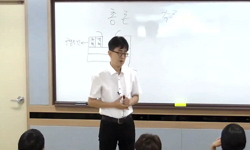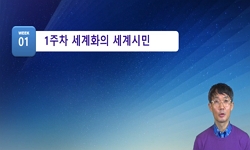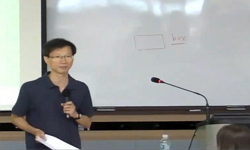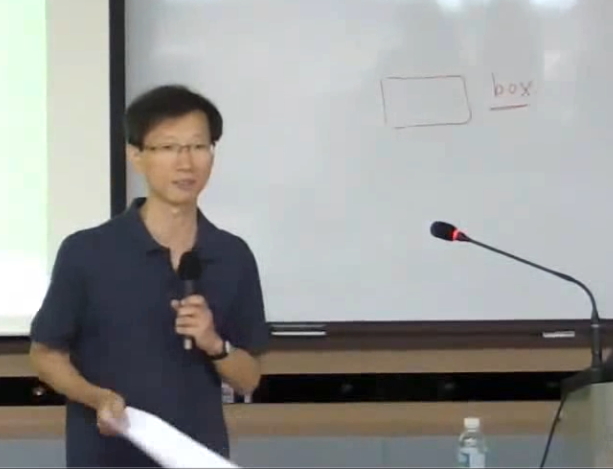Since the mid-2000s, the trend of severe punishment has become more pronounced in Korea. There are no signs of change, even though harsh punishment has many problems. Therefore, a critical analysis of the legal problems, grounds and effectiveness, and...
http://chineseinput.net/에서 pinyin(병음)방식으로 중국어를 변환할 수 있습니다.
변환된 중국어를 복사하여 사용하시면 됩니다.
- 中文 을 입력하시려면 zhongwen을 입력하시고 space를누르시면됩니다.
- 北京 을 입력하시려면 beijing을 입력하시고 space를 누르시면 됩니다.
부가정보
다국어 초록 (Multilingual Abstract)
The severe punishment is inevitably criticized for obscuring the distinction between imprisonment (Freiheitstrafe) for a limited term and life imprisonment, abandonment of resocialization, and violation of the principle of Prohibition of excessive and arbitrary restriction. In addition, imposing a heavy penalty imposes a heavy work burden on the correctional administration. It increases social costs due to an imbalance in resource allocation. Punitivism is based on the increase in crime, significantly the increase in violent crimes, and the high recidivism rate, but they are not sufficient as a basis for it.
It is time to break away from the desires for a safe society, the organization of anger that combines media and populism, and the harsh punishment based on neoliberalism and seek a new path.
Since the mid-2000s, the trend of severe punishment has become more pronounced in Korea. There are no signs of change, even though harsh punishment has many problems. Therefore, a critical analysis of the legal problems, grounds and effectiveness, and basic ideology of punitivism is more necessary.
The severe punishment is inevitably criticized for obscuring the distinction between imprisonment (Freiheitstrafe) for a limited term and life imprisonment, abandonment of resocialization, and violation of the principle of Prohibition of excessive and arbitrary restriction. In addition, imposing a heavy penalty imposes a heavy work burden on the correctional administration. It increases social costs due to an imbalance in resource allocation. Punitivism is based on the increase in crime, significantly the increase in violent crimes, and the high recidivism rate, but they are not sufficient as a basis for it.
It is time to break away from the desires for a safe society, the organization of anger that combines media and populism, and the harsh punishment based on neoliberalism and seek a new path.
국문 초록 (Abstract)
중형주의 일변도의 실정법 제ㆍ개정은 유기형과 무기형의 모호화, 재사회화 포기, 과잉금지원칙 위반의 비판을 받을 수밖에 없다. 그뿐만 아니라, 중형의 부과는 교정행정에 과중한 업무 부담을 지우게 되고, 자원배분의 불균형으로 인한 사회 비용의 실질적 증대를 가져온다. 이런 문제를 양산하는 중형주의는 범죄 증가, 특히 강력범죄 증가나 범죄자의 높은 재범률을 근거로 삼고 있으나 정당한 근거로 삼기에는 부족하며, 재범 양산이라는 측면에서 볼 때 실효성마저 떨어진다.
안전 사회를 향한 욕구, 미디어와 포퓰리즘이 결합한 분노의 조직화, 신자유주의적 사고방식에 바탕을 둔 중형주의에서 벗어나 새로운 길을 모색해야 할 때가 되었다.
2000년대 중반 이후 더 뚜렷해진 중형주의 경향은 많은 문제점을 가지고 있음에도 불구하고 아직 변화할 조짐이 보이지 않는다는 점에서, 중형주의의 법률적 문제점, 근거와 실효성, 기반이 ...
2000년대 중반 이후 더 뚜렷해진 중형주의 경향은 많은 문제점을 가지고 있음에도 불구하고 아직 변화할 조짐이 보이지 않는다는 점에서, 중형주의의 법률적 문제점, 근거와 실효성, 기반이 되는 사고방식 등에 대한 비판적 분석은 더 필요해졌다.
중형주의 일변도의 실정법 제ㆍ개정은 유기형과 무기형의 모호화, 재사회화 포기, 과잉금지원칙 위반의 비판을 받을 수밖에 없다. 그뿐만 아니라, 중형의 부과는 교정행정에 과중한 업무 부담을 지우게 되고, 자원배분의 불균형으로 인한 사회 비용의 실질적 증대를 가져온다. 이런 문제를 양산하는 중형주의는 범죄 증가, 특히 강력범죄 증가나 범죄자의 높은 재범률을 근거로 삼고 있으나 정당한 근거로 삼기에는 부족하며, 재범 양산이라는 측면에서 볼 때 실효성마저 떨어진다.
안전 사회를 향한 욕구, 미디어와 포퓰리즘이 결합한 분노의 조직화, 신자유주의적 사고방식에 바탕을 둔 중형주의에서 벗어나 새로운 길을 모색해야 할 때가 되었다.
동일학술지(권/호) 다른 논문
-
100년 동안의 고독? 켈젠에 대한 정치적 현실주의적 해석 관견
- 이화여자대학교 법학연구소
- 장영민
- 2023
- KCI등재
-
인터넷상 모욕적 표현행위의 가벌성 판단기준과 그 한계 - 최근 법원의 판결을 분석하며 -
- 이화여자대학교 법학연구소
- 이정념
- 2023
- KCI등재
-
지능형 로봇의 형법주체성 - 준주체로서의 전자인(e-person)에 관한 소고 -
- 이화여자대학교 법학연구소
- 박희수
- 2023
- KCI등재
-
- 이화여자대학교 법학연구소
- 곽지현
- 2023
- KCI등재






 RISS
RISS KISS
KISS







